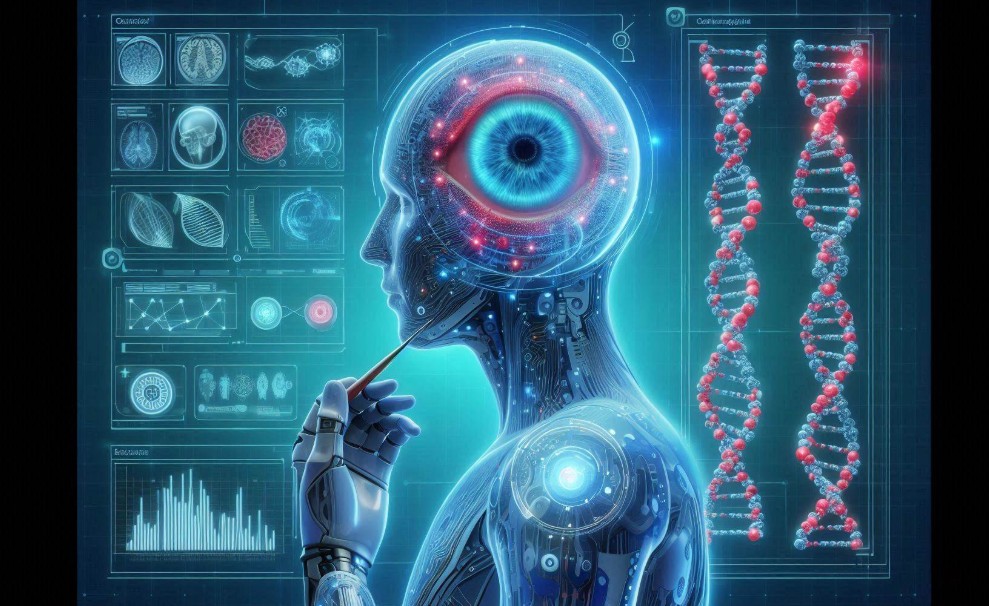In recent years, there has been a significant advancement in the field of Artificial Intelligence (AI) and Augmented Reality (AR). These technologies have become increasingly popular and have the potential to enhance virtual experiences in various fields such as gaming, education, healthcare, and...
How Artificial Intelligence Detects Rare Diseases Through Genetics

In recent years, the healthcare sector has seen a dramatic transformation, driven by breakthroughs in computing and data analysis. Modern technology is enabling doctors and researchers to uncover conditions that were once difficult to identify, offering hope to many patients with uncommon medical conditions. By leveraging sophisticated algorithms and vast datasets, new tools are being developed to analyze biological information more accurately and quickly than ever before.
Advanced computational systems are now playing a crucial role in identifying conditions that may have remained undiagnosed in the past. These systems are capable of processing complex information and revealing patterns that human eyes might miss. With the support of these technologies, medical professionals can make more informed decisions, leading to earlier intervention and better patient outcomes.
As medical data continues to grow in volume and complexity, the integration of cutting-edge techniques is making it easier to pinpoint conditions at their earliest stages. This shift marks a significant step forward in healthcare, providing a more precise and efficient approach to diagnosing challenging conditions, particularly those with subtle or overlapping symptoms.
Advancements in AI for Genetic Research
Recent progress in computing technologies has significantly enhanced the ability to analyze biological data at an unprecedented scale. By using complex algorithms and powerful machine learning models, researchers can now uncover valuable insights from vast amounts of biological information. These advancements enable a more detailed understanding of how specific genetic variations contribute to various health conditions, making it possible to identify previously overlooked patterns in genetic code.
Machine learning techniques have transformed the way researchers process and interpret biological data, allowing for quicker and more accurate predictions. This has led to breakthroughs in identifying the underlying causes of several conditions that were once difficult to diagnose. With the ability to examine a person’s complete genetic profile, these tools can spot subtle anomalies that might not be visible through traditional methods, offering new paths for early diagnosis and treatment.
Furthermore, the integration of these computational models into research platforms is allowing for real-time analysis, improving the efficiency of studies and clinical trials. As a result, scientists can now simulate how different genetic factors interact, leading to a deeper understanding of the molecular mechanisms behind various conditions. This has opened up new avenues for developing targeted therapies and personalized treatment plans, shifting the focus towards precision medicine.

AI Algorithms and Rare Disease Detection
Recent advancements in computational models have paved the way for more effective identification of uncommon health conditions. By leveraging advanced algorithms, it is now possible to process and analyze complex biological data at a scale that was once unimaginable. These algorithms can sift through enormous datasets to identify patterns that are often missed by conventional diagnostic methods, enabling earlier and more accurate diagnoses.
How Algorithms Enhance Diagnostic Accuracy
Machine learning techniques, particularly deep learning, have proven to be invaluable in the field of medical diagnostics. These models are trained on vast amounts of data, learning to recognize intricate relationships within the information. By identifying subtle genetic or molecular markers, these algorithms can highlight potential conditions that may otherwise go undiagnosed. The ability to automate this process not only speeds up the diagnostic timeline but also increases accuracy, reducing the risk of human error.
Applications in Clinical Practice
In clinical settings, the use of these models is becoming more widespread. Hospitals and research institutions are increasingly relying on algorithm-based platforms to assist in diagnosing complex cases. For example, these tools can quickly analyze a patient’s genetic data alongside clinical symptoms, helping doctors make more informed decisions. With continual updates and refinements, these systems are becoming more adept at detecting even the most difficult-to-identify conditions, making them an essential part of modern medical practice.
Impact of Genetic Data on Diagnostics
The ability to analyze and interpret genetic information has dramatically transformed the landscape of medical diagnostics. With detailed insights into an individual’s genetic makeup, healthcare providers can now uncover underlying factors that contribute to a wide range of conditions. By incorporating genetic data into diagnostic practices, it is possible to move beyond symptoms and identify the root causes of health issues, enabling more precise and personalized treatment strategies.
Improved Diagnostic Accuracy
The integration of genetic information into medical testing has greatly improved diagnostic precision. Genetic data allows doctors to detect subtle abnormalities in the DNA that may not be evident through traditional clinical tests. These insights can lead to earlier detection of conditions, especially those that have complex or overlapping symptoms, which might otherwise be misdiagnosed. This ability to identify problems at the molecular level helps create a more accurate picture of a patient's health.
Personalized Treatment Plans
By understanding the genetic basis of an individual’s condition, healthcare providers can tailor treatments to meet specific needs. This precision medicine approach not only enhances the effectiveness of therapies but also reduces the risk of adverse reactions. Genetic data can help determine how a patient will respond to different medications, allowing for more informed decisions and better outcomes. As genetic analysis continues to evolve, it is likely that even more customized treatment options will emerge, further revolutionizing patient care.



